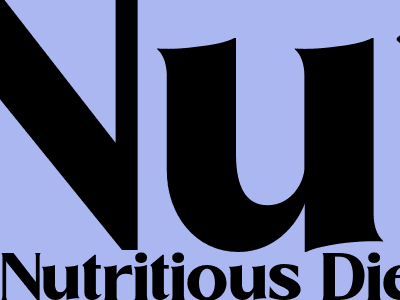Nutritious Diet: The Key to Optimal Health and Well-being
Introduction
Maintaining a nutritious diet is crucial for overall health and well-being. A balanced intake of essential nutrients, including macronutrients and micronutrients, supports bodily functions, prevents chronic diseases, and boosts energy levels. This comprehensive guide will explore the importance of a nutritious diet, the different types of nutrients, and practical tips for creating and adhering to a healthy eating plan.
The Importance of a Nutritious Diet
A well-nourished body has a strong immune system, healthy organs, and reduced risk of chronic diseases such as heart disease, diabetes, and certain types of cancer.
Benefits of a Nutritious Diet:
- Stronger immune system
- Improved heart health
- Reduced risk of chronic diseases
- Increased energy levels
- Enhanced mood and cognitive function
Types of Nutrients
Nutrients are classified into two main categories: macronutrients and micronutrients.
Macronutrients:
- Carbohydrates: Provide energy for bodily functions
- Proteins: Build and repair tissues, support muscle growth
- Fats: Provide energy, insulate organs, and support hormone production
Micronutrients:
- Vitamins: Regulate metabolic processes, support immune function
- Minerals: Support bone health, regulate fluid balance
- Antioxidants: Protect cells from damage, reduce inflammation
Creating a Nutritious Eating Plan
Developing a nutritious eating plan requires considering individual dietary needs and health goals. Here are some tips:
Choose Whole, Unprocessed Foods:
Fruits, vegetables, whole grains, and lean proteins provide essential nutrients without added sugars, unhealthy fats, or preservatives.
Variety is Key:
Consuming a variety of foods ensures a balanced intake of different nutrients. Aim for a mix of fruits, vegetables, whole grains, lean proteins, and healthy fats.
Hydrate Adequately:
Water is vital for overall health and nutrient absorption. Aim to drink 8-10 glasses of water per day.
Read Food Labels:
Pay attention to food labels to monitor your nutrient intake. Consider calorie content, macronutrient ratios, and added ingredients.
Seek Professional Advice:
Consult a registered dietitian or healthcare professional for personalized guidance and dietary recommendations that meet your specific needs.
Conclusion
A nutritious diet is indispensable for maintaining optimal health and well-being. By understanding the importance of different nutrients and implementing practical tips for creating a healthy eating plan, individuals can make informed choices that support their overall well-being and reduce the risk of chronic diseases.
Remember to consult reliable sources for accurate and up-to-date information on nutrition and dietary recommendations.

Comments